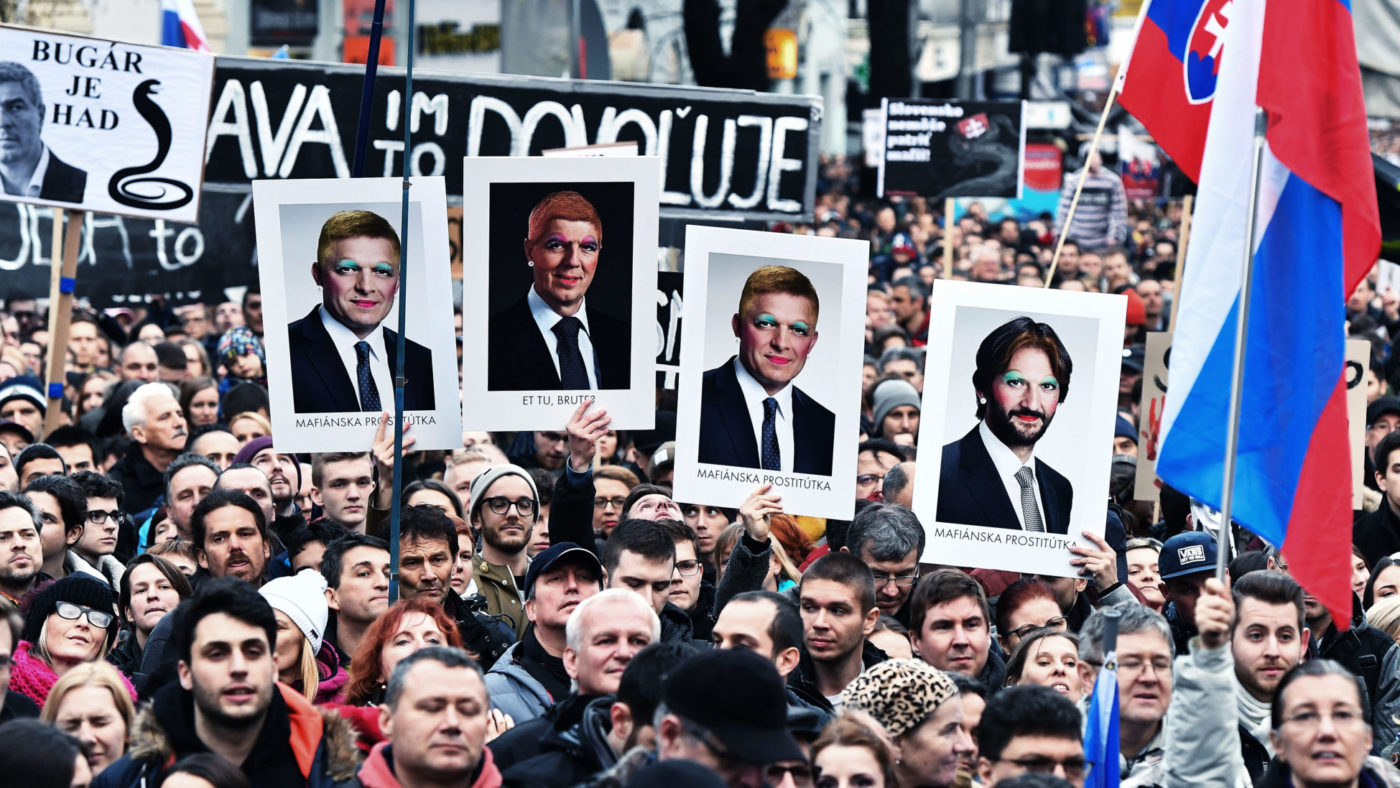August 20th marks 50 years since Warsaw Pact tanks rolled into Czechoslovakia to put down the Prague Spring reform movement, a moment which had a profound impact on the lives of countless Slovaks like me. Today, my memories of living under socialism are dim, but remain powerful. I was born in Czechoslovakia in 1978, and was raised in a small village in what is now eastern Slovakia.
For the first decade of my life, we lived in a one party state with a command economy, and our daily lives reflected this essential fact. My parents used to discourage me from talking about certain topics that might get them in trouble with the authorities. I had friends who came from religious families, but because their parents were employed by the local government, they had to travel to neighbouring towns to worship, and in some cases they could not go to church at all.
I was ten when the Velvet Revolution against the government took place in 1989. Free elections soon followed, and in 1993, the Czech Republic and Slovakia formally became independent nations. The 1990s were turbulent in many ways; US Secretary of State Madeline Albright once labelled Slovakia a “black hole at the heart of Europe” thanks to ongoing concerns about corruption and authoritarianism. However, the elections of 1998 moved Slovakia in a freer, pro-Western direction. Membership in the European Union and NATO soon followed in 2004.
It was during these formative years, both for my nation and myself, that I attended an academic program in the Czech Republic that would have an important effect on my future course. As a young university student in 1999, I studied at the American Institute on Political and Economic Systems in Prague, through an organisation called The Fund for American Studies (TFAS), which was established in Washington, D.C. in 1967.
Beginning in 1993, TFAS brought a host of American academics to Prague to teach economic and political theory to young people all across Europe who had grown up under the Iron Curtain. This was unprecedented. I remember being fascinated reading The Federalist Papers and other works of the Founding Fathers during our studies of the American system. We also learned classical economic theory, such as the importance of the free market and the open exchange of goods. It was an intense, academically rigorous program that never would have been allowed under the old system.
Without exposure to these ideas, my life would have taken a different course – as would the lives of many Eastern Europeans who, inspired by their time in the program, have gone on to seek elective office, found political parties, or volunteer in their local communities.
And had it not also embraced the Western example, Slovakia would not be the modern, free country it is today. During my childhood, the economy was weak, leaving the country was complicated, Western goods were almost unheard of, and some literature was a form of contraband — illegally home-copied and distributed ‘samizdat’ — a social network of that illiberal, analogue time. Today, the average wage is far above what it once was, and Slovaks are free to travel, work, and exchange ideas on any topic they can imagine.
Ironically, 2018 is not just the 50th anniversary of the Prague Spring, but 25 years since a free Slovakia was established. Unfortunately, on this anniversary, the trend in parts of Europe today is towards less freedom and more authoritarianism. I have seen it in my own country.
There has been a resurrection of nostalgia for the old days of a command economy. Extremists have used this longing for the past to become politically relevant once again. Many of our younger generation, who did not directly experience the day-to-day predations of the old system, now take freedom for granted. It’s clear that the fight for liberal democracy and open societies is not over.
These troubling times point to an even greater need for efforts to bring together people of different geographic, ethnic, and religious backgrounds. Only by fostering cross-cultural relationships and promoting understanding can we hope to emerge from this era, where nationalism is so prevalent not just in Europe, but also now in the United States. Even in America, we see that the work of promoting freedom is never finished. All of us who treasure open societies must continue to be vigilant and strive to live up to our ideals.


